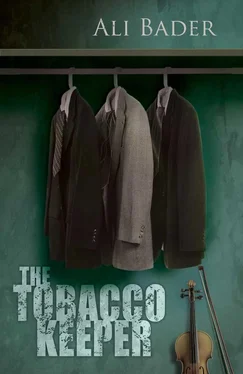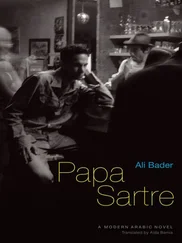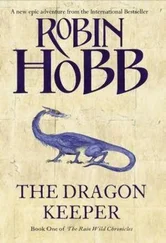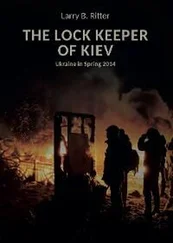It was a day of historic importance for him, in the company of a hundred and twenty musicians. In the pitch dark of the hall he was close to losing consciousness. Ten violins sang out together. A high note from one of the violins almost snatched away his soul. The sounds of the music rose higher, punctuated by the light rumba rhythm of the tympani and double bass. In a duet with the piano, his emotions reached their peak. Yousef’s soul burned, ethereal and volatile. He felt that he was infusing magic into the hearts of those who longed for love and human harmony. After just an hour, the lights flooded the hall once again and the sounds of cheers and clapping arose. Everyone applauded — lovely girls, society women, men and boys — while he merely bowed, overwhelmed by a sense of holy reverence in the endless recesses of his soul.
Yousef in those days was haunted by a single obsession, an obsession that said: ‘Do not put me in a tight corner, do not place me in a little box. When you treat me like a Jew, you suffocate me.’
His gaunt face, his cold sweat and his great anxiety acquired a different meaning in the game of politics that forced people to wear masks. As a Jew, Yousef was required to play the role of a Jew and wear the Jewish mask, in the same way that Muslims and Christians had to play their respective roles and wear their respective masks. Masks made it easy for individuals to live in society. Rejecting the mask made the artist an alien forever, even though music, art and beauty refused to narrow the individual into a role.
Yousef was a stranger to everything around him. Everybody urged him to conform to his role. But he wished only to conform to music, for music had no religion. Beauty called for submission to an abstraction, a concept or a god, but not to a military uniform. Yousef refused to wear a specific uniform or to have a specific label stuck to him. He wanted to be neither one type nor another. He wanted to become whatever circumstances required him to be. He wanted to be one individual or another, to be ‘here’ or ‘there’, at the same time.
‘How can I possibly take part in this human farce?’ he asked himself. He had the overwhelming feeling that he didn’t belong to this world at all. But he had to wear a mask, because the mask made it possible for him to regain his self-confidence. It calmed his fears, expelled his demons and quelled the violent cries in the depths of his heart, the depths that told of hell. That was Alberto Caeiro’s feeling in Pessoa’s Tobacco Shop , or what Pessoa himself had actually felt. Yousef found infinite joy in playing music. Every evening he ran as fast as he could to the music hall. He wanted to be on stage and to stay there, not only because he loved music, but also because his identity would vanish with the first step that he took on stage. His sense of elation, however, would dissolve and disappear in the morning, under the pressures of everyday life and the stamp of identities. On stage, he didn’t occupy a particular slot, nor did he conform to a particular classification. But in the morning he found himself squeezed against his will into some pigeonhole.
Everything inside him wanted to attain the sublime, the transcendent. He longed to dissolve and vanish into the ethereal. The weight of his identity was too heavy for him to bear. It pushed him towards the past, to vanish into forgetfulness. He wanted to get rid of his identity by fading away, by escaping or hiding. If it wasn’t possible to do that, he had to hide behind another character, a new name and a whole new life.
Had Yousef been thinking of changing his identity at that time? Of acquiring a new name and personality? Or of becoming a member of the Tobacco Shop club? This was what the events of his life would reveal.
Yousef’s life was steeped in the identity conflicts of the Middle East. The present, he felt, was dominated by the spectre of war and civil strife. He thought that identities spelled the end of the world. He felt suffocated and almost dead, for the country was like a ship sinking slowly while his fears spiralled. The world around him was receding and collapsing. The country was plagued by successive defeats and being torn to pieces. It was being preyed upon by all-consuming ideologies and dominated by chaos and the total absence of rationality and ethics. His own existence was under constant threat.
Instead of feeling that he was at the centre of things, Yousef was overwhelmed by a deep apprehension. A massive force was pushing him towards a dark abyss. There was degeneration, regression and a sense of defeat and collapse. Eids became depressing and the festive spirit was almost gone. Society was no longer a beautiful presence but an intricate and frightening labyrinth. Everything had become much narrower in scope. As soon as he’d passed through one barrier, his head would bump into another. It was a new but terrifying world that smelled of blood. It rushed steadily forward, but only towards the precipice.
He was still alive, but without a present or a future. He seemed to be going through a succession of vertical falls into a black, bottomless pit or into nothingness. Since 1941, Yousef had felt that the abyss would swallow up the whole of society. Death would be everywhere, and all his acquaintances would have to emigrate or die. But emigrate where? Emigration was a vague longing, a leap into the unknown. Would emigration tear down the walls? Would it banish the persistent scenes that gave him nightmares? Would it eliminate the Jewish fear of society that had persisted throughout history? Would it end the feeling of alienation and the impulse to go back to the womb? Would it demolish the wall separating the self from others or the ‘here’ from ‘there’? What would lie beyond these borders? Chaos, nothingness or paradise?
Travelling to Israel was never his objective. Although travelling in itself was fairly easy, leaving Iraq seemed to him to be entering a completely alien universe. He knew that visas were being granted to Jews, but would then be retracted and cancelled. Applications would be repeated time and time again, perhaps twenty times. Yet finally, Yousef had to get rid of his music sheets, his violin and his memories. The Jews had to leave for Israel because they’d been stripped of their Iraqi nationality. They would be deported with nothing more than the clothes they were wearing. So they put on their most expensive clothes and left for Israel. Inspection procedures at the time were terrifying and took forever.
Eventually he came to a conclusion of sorts. He opened his mouth and in a weak, inaudible voice said, ‘I’ll go to Israel.’
His wife Farida asked him to repeat this statement several times. She stopped reading her book and said in a apprehensive voice, ‘Are you sure? How strange!’ Then she fell silent.
At that moment, Yousef had little to say. The decision was simple and straightforward: All Jews had to leave their homes, furniture, and possessions and travel with nothing but their clothes. So the Jews bought the most expensive outfits, trousers, shirts, suits and shoes. Yousef, whose passion for music didn’t allow him to leave his violin behind, smashed it into pieces.
He told Farida what he’d done. He’d left for the theatre and come back without the violin. When she opened the door for him, with Meir on her arm, she looked at him briefly and felt that in front of her stood a different person. She stared at him with new eyes, while he responded with a tearful, sorrowful look. She controlled her feelings but he could not. His trembling lips expressed the inexpressible. It was a silent dialogue, a kind of brief ritual in which each of them rediscovered the other.
The inspector of emigrants stood by the metal fence. Behind him were two policemen dressed in khaki uniforms with broad leather belts and heavy boots. Huge pistols hung heavily on their right sides.
Читать дальше












